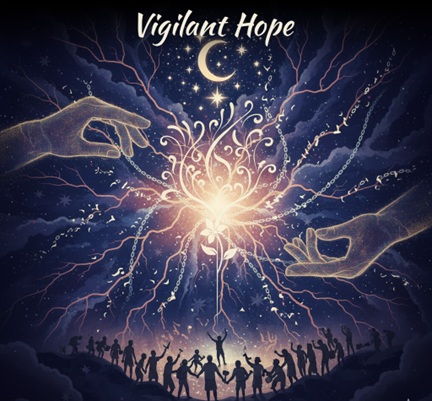From Contract to Covenant
Genesis 15:1-12, 17-18; Philippians 3:17-4:1
Rev. Kenneth M. Locke, Interim Pastor
Orchard Park Presbyterian Church; Carmel, IN
March 16, 2025; 2nd Sunday of Lent
In our OT lesson this morning, God makes a covenant with Abram. Covenant. What exactly is a covenant? It’s a common word in the Old Testament but it’s not one we use today, except in a very narrow legal sense. And what’s the difference between a covenant and a contract?
A contract is a purely legal agreement. There is no emotional component to a contract. If I move into an apartment, I will probably sign a contract for a year’s lease on that apartment. But if I need to leave after 8 months, I can. The contract has penalties for breaking it. I pay the penalties and everything’s perfectly legal. I may not like it, but no emotional relationship has been broken. Everything is above board, legal, and no emotional backlash.
A covenant, however, is a relationship. A covenant always has an emotional connection, a bond between the parties. Breaking the bond may not be illegal, but it’s definitely wrong. When we break a covenant, we hurt the other person.
Making a contract requires signing some legalized pieces of paper. But there are lots of ways to make a covenant. In our Old Testament lesson, God makes a covenant with Abram with sacrificial animals and fire. Later, the Jews adopted circumcision as a sign of the covenant between them and God.
Today, a couple getting married may exchange rings as a sign of their covenant love for each other. Afterwards, there may be a party where the families and friends share food. Sharing food helps create an emotional bond, a covenant between them.
When Jesus breaks the bread at his Last Supper and shares it with his disciples, part of what he’s doing is creating a covenant with his disciples. He’s showing them he’s in a loving relationship with them.
In a few minutes we’re going to celebrate a baptism. Baptism is deeply symbolic and does a lot of things. One of the most important things it does is create a three-way covenant: a covenant of loving relationship between God, the baptized, and the community.
This is important. Our relationship with God is not a contract. It’s not a purely legal arrangement. Our relationship with God through Jesus is a covenant. It’s a loving relationship.
Some people break that covenant, which is both very serious and very sad. As Paul says in our New Testament lesson, “Many live as enemies of the cross of Christ. Their destiny is destruction, their god is their stomach, and their glory is in their shame. Their mind is set on earthly things” (Philippians 3:18b-19).
But the good news of God is even if we break our covenant with God, it doesn’t end our relationship with God. God is still with us. God still wants to love us and be our God.
Beloved, God has not forced us into a legal contract. God has reached out to us with a covenant relationship of love. And this is part of what we’re celebrating today. Thanks be to God. Amen.



